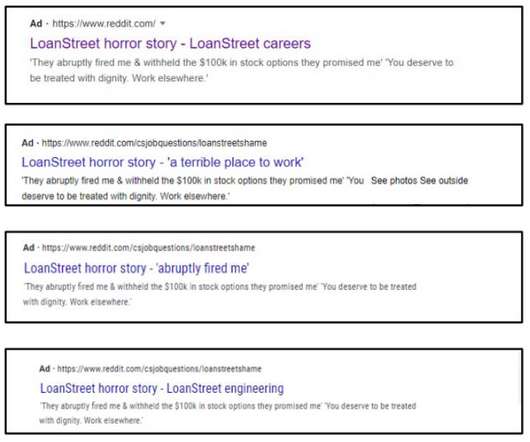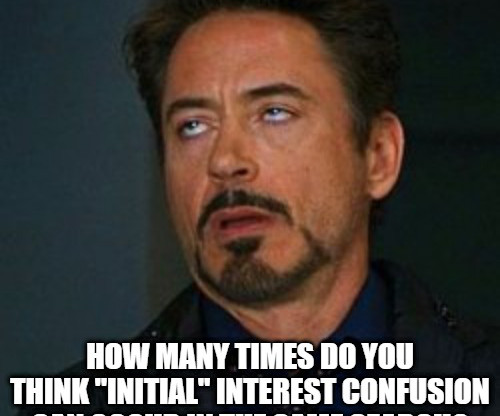Griper’s Keyword Ads May Constitute False Advertising (Huh?)–LoanStreet v. Troia
Technology & Marketing Law Blog
SEPTEMBER 9, 2022
” This definition of a service is an obvious tautology, and it’s also obviously in tension with the First Amendment. And how can consumers be “diverted” with the ad copy accurately previewed what consumers could expect to get at the link terminus? None of this is diversion; it’s consumer education.












Let's personalize your content